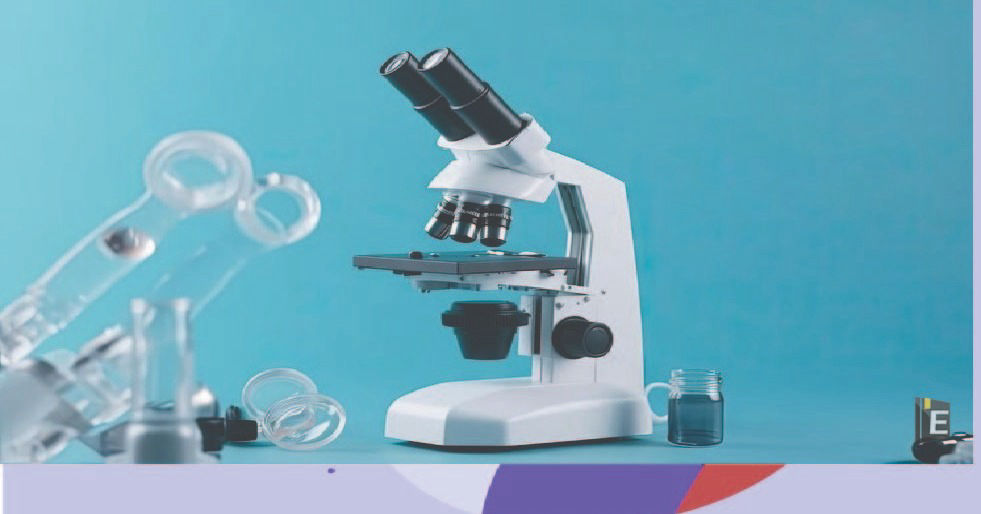Biology GK Quiz with Answers

Welcome to our interactive "Biology GK Quiz with Answers" article! If you are fascinated by the wonders of life and have a passion for understanding living organisms, this Biology GK Quiz with Answers is perfect for you. Whether you're a student preparing for exams, a curious enthusiast, or just someone who loves to explore the intricate details of the natural world, this Biology GK Quiz with Answers will challenge your knowledge and expand your understanding of biology.
Biology GK Quiz
In this article Biology GK Quiz with Answers, I am trying to share the latest and most important Biology GK Questions under General Science section for those aspirants who are preparing for upcoming competitive exams.
Also, Read Latest Current Affairs Questions 2023: Current Affairs Today
"Put your knowledge to the test and excel with our General Knowledge Mock Test and Current Affairs Mock Test!"
Biology GK Quiz with Answers
Q : Which metal is responsible for the disease called Itai - Itai ?
(A) cadmium
(B) nickel
(C) Chromium
(D) mercury
Correct Answer : A
Explanation :
Itai-itai disease is caused by cadmium (Cd) exposure, produced as a result of human activities related to industrialisation, and this condition was first recognised in Japan in the 1960s.
Which makes the origin of more diversity possible.
(A) Sexual Reproduction
(B) Vegetative Growth
(C) Tissue Culture
(D) Tissue Culture
Correct Answer : A
Explanation :
Evolution and diversity result from the interactions between organisms and their environments and the consequences of these interactions over long periods of time. Organisms continually adapt to their environments, and the diversity of environments that exists promotes a diversity of organisms adapted to them.
The amount of light entering the eye can be controlled and regulated by
(A) pupil
(B) Iris
(C) retina
(D) cornea
Correct Answer : A
Explanation :
Iris regulates the amount of light entering the eye by adjusting its size. Iris is a thin membrane, which controls pupil which in turn regulates the amount of light entering the eye.
The by - product of photosynthesis is
(A) carbon dioxide
(B) oxygen
(C) energy
(D) sugar
Correct Answer : B
Explanation :
Photosynthesis is the process in which green plants use sunlight, along with water and carbon dioxide to make their own food. Oxygen and glucose are the by-products of photosynthesis.
Which of the following is a root ?
(A) Potato
(B) Onion
(C) Carrot
(D) ginger
Correct Answer : C
Explanation :
Yams, beets, parsnips, turnips, rutabagas, carrots, yuca, kohlrabi, onions, garlic, celery root (or celeriac), horseradish, daikon, turmeric, jicama, Jerusalem artichokes, radishes, and ginger are all considered roots. Because root vegetables grow underground, they absorb a great amount of nutrients from the soil.
Mitochondria is not found in which of the following cells present in the human body ?
(A) red blood cell
(B) liver cells
(C) muscle cell
(D) white blood cell
Correct Answer : A
Explanation :
As the only cell which does not contain or have the mitochondria is the red blood cell. Red blood cell does not contain organelles like nucleus and mitochondria.
Myxodema occurs in the human body due to the malfunction of which of the following?
(A) adrenal gland
(B) pancreatic gland
(C) liver
(D) thyroid gland
Correct Answer : D
Explanation :
Myxedema is the result of having undiagnosed or untreated severe hypothyroidism. The term “myxedema” can mean severely advanced hypothyroidism. But it's also used to describe skin changes in someone with severely advanced hypothyroidism.
How many times does the heart of an adult person beat in 1 minute?
(A) 50 times
(B) 60 to 100 beats per minute
(C) 90 times
(D) 120 times
Correct Answer : B
Explanation :
A normal resting heart rate should be between 60 to 100 beats per minute, but it can vary from minute to minute. Your age and general health can also affect your pulse rate, so it's important to remember that a 'normal' pulse can vary from person to person.
The color of a cut apple turns brown after some time because it reacts with air to form-
(A) Iron Oxide
(B) Potassium oxide
(C) Aluminum oxide
(D) Sodium oxide
Correct Answer : A
Explanation :
Apple contains an enzyme known as polyphenol oxidase (PPO). This enzyme when comes in contact with oxygen molecules oxidized polyphenols into o-quinones. These o-quinones thus form reacts with the neighboring amino acids to produce melanins.
In which part of the human body is the pituitary gland located?
(A) Brain
(B) Heart
(C) liver
(D) Lungs
Correct Answer : A
Explanation :
Your pituitary gland is located at the base of your brain, behind the bridge of your nose and directly below your hypothalamus.



